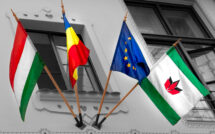

Embracing competition to revitalize democracy
Imagine a Europe where cities compete not for wealth or resources but for the title of most democratic city. Such competition would measure how much city governments invest in participatory policies, how satisfied citizens are, and how vibrant public discourse is. More importantly, it would evaluate how effective citizens are in shaping decision-making. Rooted in democratic innovation, such competition would transform the urban landscape into a participatory and dynamically progressive environment. In the past, scholars have viewed competition through economic lenses, focusing on the market forces that drive efficiency and innovation. When applied to democratic societies—or municipalities—competition takes on a transformative role. As noted by political scientist Robert Dahl (2020), competition is vital for democracy, because it fosters a diversity of voices and prevents any single power from dominating. Cities act as laboratories of democracy, as city governments experiment with and adopt new models of citizen engagement and governance.
The crisis of democracy, characterized by people’s diminished trust in institutions and declining democratic indicators worldwide, reveals a pressing necessity for remedies. This crisis is multifaceted and involves digital authoritarianism, the rise of populism, social fragmentation, political polarization, demographic shifts, and political disengagement (e.g., Freedom House 2023; V-Dem 2023). Moreover, local situations may exacerbate the crisis, as the “Finnish paradox”—a term coined by the Organisation for Economic Co-operation and Development (OECD) (2021a)—has shown. Indeed, in Finland, citizens hold a high level of trust in public institutions but paradoxically have low confidence regarding the impact of these institutions on political processes (see Nakamura et al. 2024). In 2022, the Finnish Innovation Fund—or Sitra—published a survey indicating that approximately 700,000 Finns would like to be more involved in decision-making if it were made easier for them to do so (Sitra 2022). In response to these challenges to citizens’ participation, cities in Finland and beyond have engaged in “soft competition” in a progressive approach to enhancing democratic participation and governance.
Much has been done globally to increase citizens’ participation in decision-making—for example through participatory budgeting, citizens’ assemblies, and digital participatory platforms (e.g., Elstub and Escobar 2019; Dias et al. 2021). However, the specificity of the urban setting has been disregarded in evaluating how democratic ideals compete. City governments have not yet fully engaged in competition over democratic performance, primarily because of the absence of credible, standardized methods to evaluate, monitor, and measure such efforts. Hence, better metrics are necessary to assess which urban innovations are effective and worth emulating from city to city.
The “Co-creation Radar”: evaluating democracy in cities
Historically, the evaluation of democratic processes has predominantly been oriented towards the national scope, often overlooking the unique dynamics of city-level democracy. This national focus is evident in the formulation of indices such as the Democracy Index—created by the Economist Intelligence Unit in 2006 and updated regularly (Economist Intelligence Unit Limited 2024)—and the Global State of Democracy (GSoD) Index—developed by the International Institute for Democracy and Electoral Assistance (IDEA) to evaluate the state of democracy worldwide (Tufis and Hudson 2022). Furthermore, another dataset, the Varieties of Democracy (V-Dem), provides a granular analysis of democratic systems but only does so at the macro level. It does not delve into the nuances of urban governance and participatory policies at the city level.
The OECD (2021b) has recognized the significance of evaluating participatory frameworks and since 2021 embarked on a comparative analysis of eleven such frameworks, underscoring the need to strengthen the quality of participatory processes and people’s trust in these processes. However, the OECD’s efforts have primarily concentrated on representative, deliberative processes, which, while valuable, do not capture the full spectrum of participatory democracy, especially at the local level, where civic engagement manifests itself in diverse forms and contexts. Against this backdrop, the “Co-creation Radar” (CC-Radar) has been developed at the University of Helsinki’s Faculty of Social Sciences. It has been designed as a comprehensive framework to evaluate citizen participation in urban settings (Rask and Ertiö 2019). Addressing a range of democratic values and the many facets of citizens’ engagement, the CC-Radar has been crafted through a process tuned to the distinctive features of cities. The development of the CC-Radar, methodical and iterative, has mirrored the varied terrains of urban participatory initiatives. The creators of the CC-Radar have collaborated with various urban projects and programs to shape it as a framework that is adaptable to the specific ways city governments organize civic involvement and democratic action. Hence, this tool is tailored to the unique fabric of city governance.
The CC-Radar is grounded in the literature on program evaluation (e.g., Newcomer et al. 2015); it methodically identifies both formal and informal objectives of citizen participation initiatives, which it evaluates for their democratic integrity, sustainability, and topical relevance. The framework measures the initiatives’ objectives, the quality of their implementation, and their direct and indirect outcomes. It also assesses the reaction of participants. This inclusive approach ensures that evaluations conducted by university researchers and consultants are comprehensive and tailored to the unique demands of each city. It also enhances democratic engagement and acknowledges the contextual challenges outlined by recent OECD (2021b) studies.
To measure how democratic a city is, the CC-Radar uses twelve meta-indicators, which are grouped into four categories: objectives, implementation, actors, and results. A pivotal aspect of the “actors” dimension is the deliberative quality of interactions, which refers to the extent to which discussions are inclusive, respectful, and oriented towards rational decision-making (Bächtiger and Parkinson 2019; Steenbergen et al. 2003). Stakeholders—from city officials to non-governmental organizations’ (NGO) representatives—can utilize the CC-Radar to quantitatively rank and qualitatively assess the meta-indicators and create a unique “radar image” for each initiative implemented in a particular city. This process relies on a combination of data sources, including interviews with civil servants, politicians, and NGO representatives. It also takes into account the participatory processes themselves, official statistics, and digital data to provide a comprehensive assessment of each participatory initiative’s quality and impact.
Urban democracy in action: analyzing participatory processes across cities
The pilot program OmaStadi, conducted in Helsinki from 2018 to 2020, is a pivotal example of the CC-Radar’s application. This prominent initiative was backed by a budget of EUR 4.4 million and aimed to bolster urban development through direct democracy, as well as through the leveraging of online platforms and the implementation of co-creation methods. As part of the project, residents of Helsinki actively participated in proposing and voting on urban development projects, while the CC-Radar’s twelve meta-indicators were used by the city’s government to critically assess the effectiveness of these participatory practices. The thorough evaluation yielded seven targeted recommendations to enhance future budgeting processes and make them more participatory (Rask et al. 2021). The subsequent adoption of most of these recommendations by Helsinki’s government highlights the CC-Radar’s success in evaluating and enhancing participatory budgeting. It also highlights that the CC-Radar can fortify the connection between citizens and urban development.
The accomplishments of the CC-Radar in Helsinki led to its implementation in the city of Lahti, also in Finland. However, while in Helsinki the CC-Radar was used only for a specific project, in Lahti it was notably expanded in its application to encompass city-wide participatory programs. This city, recognized as the 2021 European Green Capital, stands out for its environmental commitments and innovative approach to governance. Unique among Finnish cities, Lahti was the first city in Finland to initiate regular and systematic evaluations of its participatory programs and pioneer these assessments at the municipal level. This commitment to regular evaluations illustrates Lahti’s leadership in adopting advanced tools in its governance and in ensuring that it offers participatory programs that are effective and responsive to the needs of its citizens. By integrating the CC-Radar into these evaluations (Rask and Shin 2023), Lahti’s government has aimed to enhance the transparency and effectiveness of its initiatives, thereby setting a precedent for other cities in Finland and across Europe. Indeed, the CC-Radar’s utility has extended beyond its role in ongoing participatory evaluations in Helsinki and Lahti. The framework has also been employed in a study comparing Helsinki with cities outside Finland—Antalya, Turkey, Ljubljana, Slovenia, and Sarajevo, Bosnia and Herzegovina (Rask et al. 2024). That research identified how these cities’ governments utilize participatory processes to influence urban development and community engagement. Additionally, that research aligned closely with placemaking principles, as it explored the transformative impact of civic participation on urban spaces. Antalya’s city government implemented the “cities alive” concept, which enhanced the city’s economic well-being beyond the tourism sector by focusing on the use of sustainable urban spaces, security, and recreational opportunities. This approach promoted inclusivity and the creation of dynamic community spaces. Similarly, that same study showed that Helsinki excelled at integrating residents in decision-making through participatory budgeting. In Helsinki, urban policy emphasized equity and direct democracy and thus allowed residents to actively shape their urban environments. In contrast, the city government in Ljubljana focused on regenerating public spaces to improve their quality and the city’s social cohesion. Hence, in Ljubljana, ecological concerns such as urban heat islands were addressed and stakeholders were empowered. The approach there embodied core placemaking principles through community-driven design. Lastly, in Sarajevo, the Hastahana Park project highlighted a shift towards more democratic decision-making processes, as the city government incorporated the public’s input into the design of the park, thereby fostering healing, regeneration, and social cohesion in the community. The experiences in these five cities illustrated that successful participatory processes rely on the clear definition of objectives, the selection of relevant issues, the inclusive engagement of stakeholders, and the practical application of democratic principles. The findings of the study offered key insights into the varied approaches cities adopt to enhance placemaking through active civic involvement. The findings also provide valuable models for other municipalities aiming to enhance participatory governance and placemaking efforts and also ensure that civic engagement contributes meaningfully to urban development and democratic societies more generally.
Urban metrics reimagined: crafting context-sensitive evaluation frameworks
Throughout history, innovation has often emerged in synchronous waves in different places on the planet. Today, new urban evaluation metrics are emerging globally, and all focus on enhancing the level of citizens’ participation in shaping their local environments. For instance, the Urbaria Institute, at the University of Helsinki, has pioneered a set of sustainability indicators tailored to urban districts and blocks (Posti et al. 2024). These tools are designed to reflect the specific needs and characteristics of smaller urban units and encourage placemaking by focusing attention on participation and sustainable development at the neighborhood level. Another example is the City Strength of Democracy Index (CSDI), a framework designed to evaluate the health of democracy at the city level (The German Marshall Fund n.d.). By selecting a diverse array of publicly available local indicators, the CSDI aims to provide a detailed and nuanced picture of democratic engagement and governance in urban environments. Initially piloted in 25 cities, with plans to expand it to 123 cities across Europe and North America, this index allows city officials and citizens to track changes in democratic practices over time, benchmark performance, and identify areas for improvement. The development of the CSDI represents a step towards enhancing the transparency and accountability of local governments and fostering more democratic institutions at the grassroots level.
In harmony with the CSDI’s efforts at gauging urban democratic vitality, the World Forum for Democracy and the Council of Europe have devised the Participatory Democracy Index for Cities (PDIC) (World Forum for Democracy 2024). This instrument converts a city’s civic engagement practices into a quantifiable score derived from an extensive questionnaire completed by city administrators and thus offers a standardized method for inter-city comparisons. The PDIC includes indicators ranging from governmental commitment to public participation and youth involvement and provides city governments with structured means to assess and advance participatory democratic processes.
In an effort to expand the reach of the CC-Radar beyond Europe, its development team traveled to South Korea in March 2024 to visit the technologically dynamic cities of Seoul and Suwon, where the population is particularly interested in digital democratic technologies. The University of Helsinki’s team initiated collaborations with the region’s academic and research community to refine how residents’ participation in city development is measured. This initiative was particularly timely and relevant, given that V-Dem (2023) has recently reported a dip in South Korea’s democratic indicators, a topic of concern to Korean researchers. During its visit, the Finnish team learned about the Gyeonggi Do Provincial Institute for Lifelong Learning’s 2021 Local Democracy Index, which monitors democratic participation across Gyeonggi province’s 31 municipalities. This index uses 20 distinct indicators, thereby providing an insightful view of the local democratic ethos.
The CC-Radar has taken shape as a pioneering “third-generation” indicator system (Rask 2024) that bridges the gap between various global endeavors to measure levels of democracy. Building upon the first-generation indicators’ focus on comparative ranking and the second generation’s multidimensional data representation (Erkkilä et al. 2023), the third-generation system leverages co-designed, context-sensitive criteria and employs artificial intelligence (AI) methodologies. The latter allow for nuanced analyses and the dynamic tracking of the democratic quality of online participatory processes (Shin 2023; Shin et al. 2022). The lessons learned from international engagements such as the visit to South Korea contribute to refining these advanced urban metrics, ensuring they are globally relevant and responsive to diverse democratic contexts.
Charting the future of participatory democracy in European cities
As the narrative about urban evaluation frameworks unfolds, it becomes clear that participatory culture in European cities is dynamic and evolving, animated by the active involvement of citizens. Delving into urban democracy through the lens of the CC-Radar reveals a participatory zeitgeist in cities, where communities are not simply subjected to policies but empowered to be active co-creators of urban spaces. The use of AI has transformed how various aspects of city life are analyzed. Today, indicators have a dual purpose: they both take the democratic pulse of cities and promote a healthy competition between cities. As comparing different urban experiences may advance the practice of democracy, this competition leads to increased democratic quality and makes these assessments more engaging, meaningful, cost-effective, and attuned to unique urban realities.
From Helsinki’s lively squares to Antalya’s ancient promenades, every city’s narrative weaves into the broader tapestry of European democratic innovation. Each city adds its unique story to the pursuit of a shared future where citizens’ participation deepens and democracy thrives. Looking forward, the role of AI in democracy presents its set of challenges, yet holds immense potential. Progress in this realm, fueled by a commitment to inclusive processes, inches us towards a future in which every individual has a stake in the urban fabric. This is the next chapter for citizens’ involvement in Europe—diverse and relentlessly democratic.
Mikko Rask is Associate Professor at the University of Helsinki. He specializes in urban sustainability and participatory democracy. He leads European research projects focusing on urban participatory processes and on the Co-Creation Radar, a tool developed to evaluate citizen participation in urban contexts.
References
Dahl, Robert A. 2020. On democracy. Veritas paperback edition. New Haven: Yale University Press.
Dias, Nelson, Sofia Enríquez, Ricardo Cardita, and Silvia Júlio. 2021. Participatory Budgeting World Atlas (2020-2021). Faro, Portugal: Oficina.
Economist Intelligence Unit Limited. 2024. Democracy Index 2023. Age of Conflict. Accessed [April 23, 2024]. https://pages.eiu.com/rs/753-RIQ-438/images/Democracy-Index-2023-Final-report.pdf.
Elstub, Stephen, and Oliver Escobar, eds. 2019. Handbook of Democratic Innovation and Governance. Cheltenham, UK and Northampton, MA, USA: Edward Elgar Publishing.
Erkkilä, Tero, Meng-Hsuan Chou, and Niilo Kauppi. 2023. Knowledge Alchemy: Models and Agency in Global Knowledge Governance. Bristol, UK: Bristol University Press, Transnational administration and global policy series.
Freedom House. 2023. Freedom in the World 2023. Marking 50 Years in the Struggle for Democracy. Accessed [April 23, 2024]. https://freedomhouse.org/sites/default/files/2023-03/FIW_World_2023_DigtalPDF.pdf.
The German Marshall Fund. n.d. The City Strength of Democracy Index. Accessed [April 23, 2024]. https://www.gmfus.org/sites/default/files/CSDI%20Concept%20Note.%20Long.pdf
Gyeonggi Do Provincial Institute for Lifelong Learning. 2021. Study on the Development of Local Democracy Index (in Korean), Gyeonggi-Do (경기도 민주주의 지수 개발 연구)
Nakamura, Hidenori, Mikko Rask, and Mikko Kojo. 2024. “An Open Dialogue Culture and Transformative Policy Process for Sustainability: Exploratory Case Study of Finland.” Journal of Environmental Studies and Sciences 14, no. 1: 52–68.
Newcomer, Kathryn E., Harry P. Hatry, and Joseph S. Wholey, eds. 2015. Handbook of Practical Program Evaluation. Hoboken, New Jersey, USA: John Wiley & Sons.
OECD. 2021a. Drivers of Trust in Public Institutions in Finland, Building Trust in Public Institutions. Paris, France: OECD Publishing. https://doi.org/10.1787/52600c9e-en.
OECD. 2021b. Evaluation Guidelines for Representative Deliberative Processes. Paris, France: OECD Publishing. https://doi.org/10.1787/10ccbfcb-en.
Posti, Mikko, Mari Vaattovaara, and Jussi Jännes, eds. 2024. Kohti kestävämpiä asuinalueita: kaupunginosien ja kortteleiden kestävyysindikaattoreita. Helsinki, Finland: Helsinki University Library (in Finnish). Accessed [April 26, 2024] https://doi.org/10.31885/9789515183019 .
Rask, Mikko. 2024. Innovating Urban Performance Measurement: The Advent of Third Generation Indicators. XXXV ISPIM Innovation Conference, Tallinn 9–12 June, 2024.
Rask, Mikko, and Titiana-Petra Ertiö. 2019. The Co-Creation Radar. A Comprehensive Public Participation Evaluation Model. Helsinki, Finland: BIBU project. Accessed [April 23, 2024]. https://bibu.fi/policy-brief-the-co-creation-radar-a-comprehensive-public-participation-evaluation-model/.
Rask, Mikko, Titiana-Petra Ertiö, Pekka Tuominen, and Veronica Ahonen. 2021. Final Evaluation of the City of Helsinki’s Participatory Budgeting: OmaStadi 2018–2020. Helsinki, Finland: Ministry of Justice and the BIBU project. Accessed [April 23, 2024]. https://bibu.fi/wp/wp-content/uploads/2021/05/BIBU_OmaStadi_English.pdf.
Rask, Mikko, and Bokyong Shin. 2023. Lahden Kaupungin Osallisuustoiminnan Arviointi. Lahti, Finland. Accessed [April 23, 2024]. https://www.lahti.fi/tiedostot/lahden-osallisuustoiminnan-arviointiraportti-2023/ (In Finnish).
Rask, Mikko, Tahir Albayrak, Erna Husukić, Matej Nikšič, Bokyong Shin, Pekka Tuominen, and Emina Zejnilović , E. (2024). “Examining Civic Participation Across Diverse Contexts: Insights from the Co-Creation Radar.” In Dynamics of Placemaking, Volume 2: Engagement in Placemaking – Methods, Strategies, and Approaches, edited by Carlos Smaniotto Costa. Leiden, The Netherlands: Brill.
Shin, Bokiong. 2023. “Residents’ voices on proposals: Analysing a participatory budgeting project in Seoul using topic modeling.” In Electronic Participation: EGOV-CeDEM-ePart 2023, edited by N. Edelman, C. Csáki, L. Danneels, A.-S. Novak, P. Panagiotopoulos, P. Parycek, I. Susha, & G. Schwabe, 50–64). New York, USA: Springer.
Shin, Bokyong, Mikko Rask, and Pekka Tuominen. 2022. Learning through online participation: A longitudinal analysis of participatory budgeting using Big Data indicators. Information Polity, 27(4), 517–538.
Sitra. 2022. Accessed [April 23, 2024]. https://www.sitra.fi/uutiset/yli-puoli-miljoonaa-suomalaista-haluaisi-osallistua-enemman-yhteiskunnalliseen-paatoksentekoon-jos-se-olisi-nykyista-helpompaa/
Tufis, Claudia and Alexander Hudson. 2022. The Global State of Democracy Indices Codebook, Version 6. Accessed [April 23, 2024]. https://www.idea.int/gsod-indices/sites/default/files/inline-files/global-state-of-democracy-indices-codebook-v6.pdf.
V-Dem. 2023. Defiance in the Face of Autocratization. Democracy Report 2023. University of Gothenburg. Accessed [April 23, 2024]. https://www.v-dem.net/documents/29/V-dem_democracyreport2023_lowres.pdf.
World Forum for Democracy. 2024. Participatory Democracy Index for Cities. Accessed [April 23, 2024]. https://www.coe.int/en/web/world-forum-democracy/-/participatory-democracy-index-for-cities.
Published on June 17, 2024.




